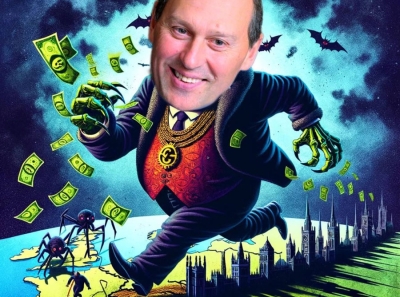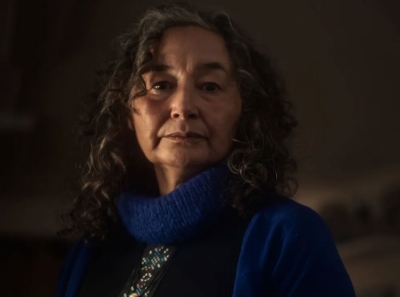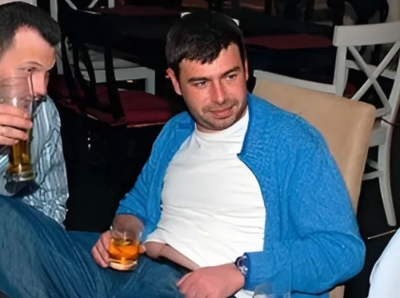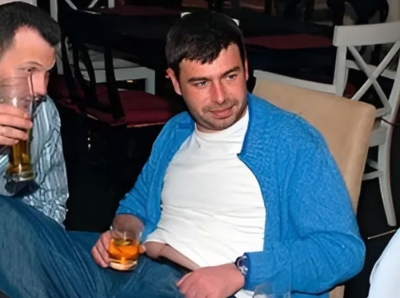Bruce Praet is a well-known name in law enforcement, especially across California. He co-founded a company called Lexipol that contracts with more than 95% of police departments in the state and offers its clients trainings and ready-made policies.
In one of Praet’s training webinars, posted online, he offers a piece of advice that policing experts have called inhumane. It’s aimed at protecting officers and their departments from lawsuits.
After police kill someone, they are supposed to notify the family. Praet advises officers to use that interaction as an opportunity. Instead of delivering the news of the death immediately, he suggests first asking about the person who was killed to get as much information as possible.
Reporter Brian Howey found that officers have been using this tactic across California, and the information families disclosed before they knew their relative was killed affected their lawsuits later. In this hour, Howey interviews families that have been on the receiving end of this controversial policing tactic, explaining their experience and the lasting impact. Howey travels to Santa Ana, where he meets a City Council member leading an effort to end Lexipol’s contract in his city. And in a parking lot near Fresno, Howey tracks down Praet and tries to interview him about the consequences of his advice.
Dig Deeper
Read: After Police Killings, Families Are Kept in the Dark and Grilled for Information (Los Angeles Times)
Read: How Paid Experts Help Exonerate Police After Deaths in Custody (The New York Times)
Read: ‘He Died Like an Animal’: Some Police Departments Hogtie People Despite Knowing the Risks (The Marshall Project)
Credits

Reporter: Brian Howey | Producer: Najib Aminy | Editor: Jenny Casas | Fact checkers: Nikki Frick and Kim Freda | Production managers: Steven Rascón and Zulema Cobb | Digital producer: Nikki Frick | Original score and sound design: Jim Briggs and Fernando Arruda | Interim executive producers: Taki Telonidis and Brett Myers | Host: Al Letson | Editorial and reporting guidance from Wesley Lowery, David Barstow and Christine Schiavo | Special thanks to the Investigative Reporting Program at UC Berkeley’s Graduate School of Journalism
Support for Reveal is provided by the Reva and David Logan Foundation, the John D. and Catherine T. MacArthur Foundation, the Jonathan Logan Family Foundation, the Ford Foundation, the Hellman Foundation, the Robert Wood Johnson Foundation, and the Park Foundation.
Transcript
Reveal transcripts are produced by a third-party transcription service and may contain errors. Please be aware that the official record for Reveal’s radio stories is the audio.
| Al Letson: | From the Center for Investigative Reporting and PRX, this is Reveal. I’m Al Letson. |
| Speaker 2: | I’m going to turn it over to Bruce today and maybe, Bruce, you can give us a few more words about yourself and then get started. |
| Bruce Praet : | Sure. Asking an attorney to talk about himself, this could go on for hours. |
| Al Letson: | Bruce Praet is not a household name, but maybe it should be, especially in California, where he’s been one of the most influential architects of policing policies for the last two decades. |
| Bruce Praet : | Yeah, I was a cop for 10 years and I’ve been defending them for what, 34 years now in federal court. |
| Al Letson: | The last time Bruce put on a badge was back in the eighties. He worked as a patrol officer, was on the canine unit, and spent time as a detective all in Orange County, California. Today, his claim to fame is the advice he gives to police departments across the state. |
| Bruce Praet : | Start with a suspect. Please, record the suspect. And you know he’s going to lie through his teeth, all the better. Paint him into a corner, make sure he can’t wiggle out later in court. |
| Al Letson: | Over the years, Bruce has given a lot of talks and a lot of advice in the form of trainings, like these online webinars. Because he’s an attorney, a lot of that advice is about legal issues and how to avoid them. He often talks in a tone that says, “I’ve been through it all before”, and the situations he describes are often framed as us versus them. |
| Bruce Praet : | How do you know if there’s going to be a lawsuit? Well, when the bad guy says, “I’m going to sue your ass,” it’s usually a pretty good indication. |
| Al Letson: | This audio is from a workshop Bruce ran in 2019 on how officers can protect themselves in court. |
| Bruce Praet : | I don’t understand why cops have this inherent need to take bloody photographs of suspects after they get in a fight or whatever with a bad guy. Stop it, clean them up. There’s a simple formula. You all need to commit this to memory. Red turns to green at the time of trial. If there’s blood in the photo, you are going to pay money. Clean them up and get them smiling for the picture. We use that in court later, it is good stuff. Send me copies. I’m going to publish a book, Stupid people Hurt by Cops Who are all Going to Make a Million Bucks. |
| Al Letson: | Back in 2021, investigative reporter, Brian Howey, started watching Bruce’s webinars. And in one of them, he heard Bruce give a piece of advice that stood out about what to do when an officer kills someone on the job. |
| Bruce Praet : | What’s the likelihood you’re going to get sued in an officer-involved shooting? Damn close to a hundred percent. Trust me, somebody will crawl out from underneath a rock and decide the dearly departed is highly worth something now that he’s dead and you’re going to get sued. But what do we do? |
| Al Letson: | Today, on the show, we’re focusing on what Bruce advises officers to do after someone is killed by police. It’s advice that some policing experts call inhumane. We’re teaming up with Brian and the investigative reporting program at UC Berkeley’s Graduate School of Journalism. Brian starts with how things should be done. |
| Brian Howey: | After spending a lot of time listening to Bruce’s webinars, I did a lot of research on what’s supposed to happen after an officer kills someone. One of those things is a death notification, basically notifying friends or family that someone has died. It’s part of the job for many law enforcement officers. A lot of training materials on how police should do these notifications mention two things, delivering the news directly and doing so as soon as possible. |
| Speaker 5: | You make it fast. It’s kind of like taking a bandaid off. You don’t pull it one little piece at a time. It’s got to be fast, and that’s the compassionate way of telling somebody that their loved one’s passed away. You don’t play games with them. |
| Brian Howey: | I found examples like this one. Former cops giving interviews on how notifications should be done. FBI training materials say the same thing. Notifications should be done clearly and quickly. So that’s the official advice. Bruce Praet’s advice is different. |
| Bruce Praet : | Here’s some free advice. Get a profile on the suspect as soon as you can. In this age of social media, the grapevine has gotten lightning speed. Before the dust settles, I want you to send in a uniform, a detective, I don’t care, somebody out to their friends and family to find out what they’ve been up to for the last 24 hours. |
| Brian Howey: | In Bruce’s advice, the investigation is centered on the person who police killed. He’s advising officers to find out as much as possible. Who was this person? What were they up to? Were they breaking any laws? In essence, get as much dirt as quickly as possible. |
| Bruce Praet : | Go out there and get that evasive truth. |
| Brian Howey: | The evasive truth. Bruce teaches that the truth is harder to access after a death notification. So Bruce recommends police start with questions to get as much information before telling families why they’re there. In this training, Bruce acts out both sides of the interaction to demonstrate his advice. Here, he’s playing an officer and listen for how he, as the officer, describes why he’s there. |
| Bruce Praet : | Hi, Mrs. Jones. We’ve had contact with your son. We’re trying to figure out what he’s been up to. |
| Brian Howey: | Then Bruce plays the part of the mother. He calls her Mrs. Jones. |
| Bruce Praet : | “Oh, you know what, he got laid off. His girlfriend broke up with him, his dog died. He’s been on a drinking binge. He is been meth all week long. See that hole in the wall? He just punched his fist. What’s his bail? Where do we get him?” At which point, by the way, you’ll get a very concerned look on your face and say, “You know what, Mrs. Jones, I regret to inform you, your son was involved in a shootout with the officers and he didn’t survive.” “What my son, the Eagle Scout?” No, sorry, lady. You’re married to that evasive concept called the truth. |
| Brian Howey: | Consider for a moment what Bruce is suggesting. Imagine you’re home and you get a knock on the door. It’s the police. You let them in and they start asking questions about a relative of yours. They ask about their drug use, criminal history, mental health. You answer the questions, but the whole time, you’re wondering why they’re asking them. And only when you ask directly, do the officers reveal that your relative is dead. |
| Joanna Schwartz: | That advice that Bruce Praet is giving is, to my view, at the expense of serving the community and recognizing the harm and devastation of a police-involved killing. |
| Brian Howey: | UCLA Law professor, Joanna Schwartz has been looking into Bruce’s influence on policing for years. She does research on police misconduct and accountability, and she’s the author of a recently published book called, Shielded: How the Police Became Untouchable. |
| Joanna Schwartz: | Bruce Praet is, in the circles in which he travels, an exceedingly important figure. He is in the center, I believe, of the community of defenders of police officers in these cases and also at the center of police policymaking. |
| Brian Howey: | Bruce isn’t just shouting this advice from a YouTube soapbox. He co-founded a company called Lexipol. |
| Speaker 7: | Thousands of agencies across the country trust Lexipol. |
| Brian Howey: | Lexipol has been serving police departments since it was founded in the early 2000s. The company offers trainings, like Bruce’s webinars, and policy, that’s Lexipol’s bread and butter. In the US, police departments are responsible for writing their own policy manuals, the rules for how police officers are supposed to do their jobs. Large police departments in major cities usually can afford an in-house team of policy writers who keep the manuals up to date on the latest local, state, and federal laws. But for smaller departments, without all those lawyers, it can be hard to keep up. That’s where Lexipol comes in. The company has a kind of policy buffet with ready-made language that police departments can put into their manuals. |
| Joanna Schwartz: | And the goal of Lexipol, if you look at their materials, their goal is to manage risk, they say, which really means to reduce liability. |
| Brian Howey: | Joanna and other critics like the American Civil Liberties Union say Lexipol’s policies are vaguely worded, so it’s hard to tell when an officer violates them. And they’re cookie cutter, you can find the same language over and over in manuals from different departments. Agencies are allowed to edit the policies they get from Lexipol if they choose to, but it’s unclear how many actually do. And Lexipol reach is far and wide. |
| How big is Lexipol? | |
| Joanna Schwartz: | Lexipol writes the policies for more than 95% of California’s law enforcement agencies. And at last count, they provided policies for upwards of 3,500 law enforcement agencies across the country, and I am aware of no other private or government entity that comes close to writing policies for that volume of agencies. |
| Brian Howey: | 3,500 agencies across the country. That means nearly one fifth of all police departments in the US subscribe to Lexipol. |
| Joanna Schwartz: | When Lexipol provides policies and trainings, and Bruce Praet is a founder of Lexipol and Bruce Praet gets on a webinar and gives advice about how to undertake an investigation, you have to assume that officers and their supervisors and the administrators and executives within law enforcement agencies are listening. |
| Brian Howey: | I wanted to see if Bruce’s advice was just advice or if police departments are actually using this tactic after they kill someone, turning death notifications into interviews and then using the information police get to protect themselves in court. So I focus where Lexipol got its start, California. I called civil rights attorneys all over the state to ask if they’d ever heard of this. I reviewed dozens of court cases and I filed a bunch of public records requests. And after a few months, I got some answers. Police departments have been conducting death notifications, just like Bruce advises all over the state. You can hear it for yourself in these scratchy police recordings where, instead of opening with what happened, police went into interrogation mode. |
| Speaker 8: | Does your husband own a gun? |
| Speaker 9: | So was he using drugs or selling drugs or- |
| Speaker 8: | What was your husband upset about? |
| Speaker 9: | Do you know if he’s married, if he has a wife? Kids? |
| Brian Howey: | These clips are some of the 20 instances I found across 15 different police agencies. In each of these interactions, officers spent those crucial first minutes with families peppering them with questions instead of telling them someone they know was killed or seriously hurt by police. |
| Speaker 9: | How long were you guys married? |
| Speaker 10: | We were married and I got a divorce two years ago. |
| Speaker 9: | What was the reason? |
| Speaker 8: | I just need to know what really happens. I’m trying to figure out the whole picture, so I need your honesty. Has he hit you before? |
| Speaker 11: | Did you hear him say anything unusual where you think he might be having a mental health issue? |
| Speaker 15: | No. |
| Speaker 11: | Nothing at all? |
| Speaker 13: | Has he ever been diagnosed with any mental issues? |
| Speaker 14: | No. |
| Speaker 13: | Did he take any medications? |
| Speaker 14: | No. |
| Brian Howey: | In 14 of those cases, the departments that use this interview tactic had been or still were Lexipol customers, and that’s just what I found from the small percentage of California police departments that I requested records from. Multiple civil rights attorneys told me I’ve only discovered a fraction of what they say is a routine policing practice. In the incidents I found, officers continue asking questions for several minutes as confused and anxious families wait to learn why the police are at their door. |
| Speaker 15: | Well, yeah, it seems like I need to have a lawyer present the way it’s- |
| Speaker 16: | No. No. [inaudible 00:13:10]. |
| Speaker 15: | I hope he is not in big trouble and I wish you guys would get to the punch line. |
| Al Letson: | Once Brian confirmed that this is happening across California, he started looking into how police departments use the information they get from families during death notifications. When we come back, Brian meets with people who have experienced this tactic firsthand. |
| Jim Showman: | As I look back, I sang like a canary. If you haven’t really been involved with law enforcement, you think they’re your friends, and so I told them more than I should have. |
| Al Letson: | That’s coming up next on Reveal. |
| From the Center for Investigative Reporting and PRX, this is Reveal. I’m Al Letson. One of the first things you’ll notice about attorney Humberto Guizar’s office is the Los Angeles sports memorabilia. Humberto’s commitment to LA teams is even painted on his office walls. | |
| Humberto Guizar: | Dodger Blue. Can’t you tell I’m a Dodger’s fan? It’s Dodger Blue. |
| Al Letson: | This fall, investigative reporter, Brian Howey, went to his office in the sun-baked city of Montebello, just outside of Los Angeles. It’s not just decorated with sports souvenirs. Humberto also has a figurine collection, a diorama of toys he bought from a gumball machine at the carwash. |
| Brian Howey: | It looks like you have a whole scene going on. Tell me the story behind this. |
| Humberto Guizar: | The little homies, I like them. That’s the environment I grew up in. So symbolic right here you have a car with three guys sitting in there, just chilling. Then you have this guy flirting with a little Chola girl. This one shows a guy surrendering with an LAPD officer aiming a gun at him with a dog, a canine dog. And this guy on the bike like, oh, shit, I’m out of here. |
| Al Letson: | But there’s no figurine for Humberto. If there was, it’d be one with a stocky build, salt and pepper hair, a goatee, a few tattoos and a few rings. And maybe there ought to be one, because this is a familiar scene to Humberto. He spent nearly 30 years representing more than a hundred families of people who died in encounters with police. |
| Humberto Guizar: | The angle for us is to get you as much compensation, and that’s a vindication of the truth. When you get a big resolution and you get paid a lot of money for the loss of a loved one, that is acknowledging that they did wrong because they don’t just pay a lot of money for nothing. So it does bring a sense of justice to the family. |
| Al Letson: | Brian met with Humberto to ask if he’d ever heard of a policing tactic, one where officers questioned the next of kin before notifying them that someone they know has been killed by police. |
| Humberto Guizar: | This has been the case for many years. This turned into a weapon to hide the truth and to get the truth modified in a way that benefits them, to justify the use of deadly force, to justify their bad behavior. Simple as that. |
| Brian Howey: | Why? |
| Humberto Guizar: | They use that information to minimize the value of the case, obviously. |
| Al Letson: | Brian, along with our partners at UC Berkeley’s Investigative Reporting Program have been looking into why law enforcement officers are questioning families before notifying them that a relative has been killed by police. And a quick warning, this story contains audio clips of actual death notifications that could be difficult for some listeners. |
| Brian Howey: | Humberto is one of about a dozen attorneys I talked to for this story. Many say they’ve seen this tactic so often they see it as standard practice and many put me in touch with families who say they experienced it in real life. This led me to Tina Slater. We spoke over the phone last year. |
| Tina Slater: | Okay, I had just got off work because I worked a 2:00 AM to 10:00 AM shift at work, so I had just got home. |
| Brian Howey: | It’s a spring morning in 2015. Tina had just wrapped up an overnight shift at Joanne Fabrics and finished a meal with her brother and mom, Kathleen. Neither of them expected two San Bernardino County Sheriff’s deputies to knock on their door. |
| Speaker 19: | Today is Wednesday, April 15th, 2015, at approximately 1142 hours. Be attempting to make family notification. I being myself and Detective Troy Meridian. |
| Brian Howey: | Tina’s lawyers gave me this tape the deputies recorded that day. |
| Speaker 19: | How are you doing? |
| Tina Slater: | [inaudible 00:18:01]. |
| Speaker 19: | Hi, we’re the detectives from the sheriff’s department? Can we come in? |
| Tina Slater: | Yeah, sure. [inaudible 00:18:06] |
| Brian Howey: | The deputies are there to tell Tina that her 28-year-old son Joseph has been killed. |
| Speaker 19: | Are you Tina? |
| Tina Slater: | Mm-hmm. |
| Speaker 19: | Are you Joseph’s mom? Can we talk to you for a few minutes? |
| Tina Slater: | Yeah, sure. |
| Brian Howey: | Inside the house, it’s the five of them; Tina, her brother, her mom, Kathleen, and the two sheriff’s detectives. Instead of opening with the actual death notification, one detective asks a question. |
| Speaker 19: | So I want to talk to you a little bit about Joseph. Was Joseph here last night? |
| Tina Slater: | My mom, I guess, had argued with Joseph the night beforehand, so my mom started telling him stuff about how he was acting. |
| Kathleen: | He was here last night. Yeah, he torn my things off the windows to pull the curtains back. I think he was on meth or something, I’m not sure because he’d done it once be before he acted crazy and this time he’s really out of hand. |
| Brian Howey: | Kathleen is a little hard to hear, but she says her grandson Joseph was there the night before, that she thinks he was on meth because he was acting out of hand and that he’s done this before. The detectives keep the questions coming for nearly 10 minutes. |
| Speaker 19: | What time did this start? What was he doing walking up and down the street? What was he doing inside the house? You said he tore something down? You said earlier it looked like he was on methamphetamine. So a couple of years ago when he was climbing the poles and doing that stuff- |
| Kathleen: | Yeah. |
| Speaker 19: | He was acting the same way. He got mad? Do you know what drugs he uses, if any? What was he saying? Around what time did he leave? |
| Brian Howey: | All of these questions get into Joseph’s past, his issues with substance abuse, mental health challenges, times where he’d been arrested before, plus more details about his behavior that night. All the while delaying the main reason why detectives are there, to tell the family Joseph is dead. The questions stop when Kathleen asks one of her own. |
| Kathleen: | Where is he at now, may I ask? |
| Speaker 19: | Well, there’s no easy way of saying this. Unfortunately, he did pass away. |
| Kathleen: | No, no. |
| Speaker 19: | I’m sorry to have to tell you. |
| Kathleen: | No, no. Oh my God, no. |
| Tina Slater: | I know my mom always felt guilty. She kept saying, “Oh God, here I went and told them all this stuff. I feel so bad. I feel so guilty.” So yeah, yeah, she had told me not that long before she passed how she would always feel guilty for that. |
| Brian Howey: | After they notified you that Joseph had died, did you have a sense as to why they were asking those questions? |
| Tina Slater: | At the beginning, no. |
| Brian Howey: | No. |
| Tina Slater: | No, at the beginning, because I didn’t realize how he had died. They had just said that he was dead and then I had found out later hearing on the news and stuff actually what exactly he died of. They just said that his death was being investigated. |
| Brian Howey: | The detectives who met with Tina and her family gave few details about what happened. Here’s what they shared that day. |
| Speaker 19: | That’s one thing we’re investigating is what caused it. He was at the Valero gas station and he started doing some things there which caused them to call the police. When the police got there, he was handcuffed, but then he started having some medical problems and they called an ambulance, but unfortunately, he died. |
| Brian Howey: | All of that is technically true, but news reports, records from the sheriff’s department and the court records paint a fuller picture. The night Joseph died, San Bernardino County Sheriff’s deputies arrested him at a Valero gas station. The deputies restrained Joseph using a hog tie. It’s a controversial technique that involves binding someone’s wrists to their ankles while that person is lying on their stomach. And it’s controversial because it’s known to be deadly. Deputies put Joseph in a patrol car while he was hogtied. And after a few minutes, he stopped breathing. |
| Tina and her family sued the sheriff’s department in civil court, they accused deputies of killing Joseph with excessive force. The department’s lawyers argued that Joseph died from a methamphetamine overdose. That’s how the coroner ruled Joseph’s death. And to bolster their point, during a deposition, they played the recording from the death notification where Tina’s mom shared Joseph’s drug history. | |
| Just before the case went to trial, the San Bernardino County Sheriff’s Department reached an undisclosed settlement with Tina’s family. The sheriff’s office never responded to my request for an interview, nor did they comment on why officers questioned Tina and her family before notifying them about Joseph’s death. I asked Tina about that too. | |
| Did you think about how they asked those questions before they told you what had happened? Maybe considered why they had asked those questions, did you have any idea? | |
| Tina Slater: | At the beginning, no. I too much of a shock, but as time kind of went on, I kind of realized that they were doing that to build their case for their defense. They didn’t know Joseph. They only got the bad thing that he did yesterday. They don’t hear about the person that he was, a good person. They just go by how he was acting at a certain point, not the true person that he was. |
| Brian Howey: | In the months after I spoke with Tina, I found more and more cases like hers, cases where investigators extracted damning information from families before telling them that their relative had been killed by police. Many of those families and their attorneys tell me they believe the information law enforcement got from them in that moment may have impacted the outcome of their lawsuit. If there’s one case that exemplifies this, it’s Jim Showman’s. |
| Jim. | |
| Jim Showman: | How was the drive? |
| Brian Howey: | It was actually pretty good. |
| Jim Showman: | Yeah, I’m surprised. |
| Brian Howey: | Me too. |
| Jim Showman: | [inaudible 00:24:26]. |
| Brian Howey: | I went to meet him on a sunny day this past fall at his suburban home in San Jose, California. |
| We’ve been talking on the phone for what, like a year and a half now? | |
| Jim Showman: | Yeah, it’s been a while. |
| Brian Howey: | In the summer of 2014, Jim had returned from work to find his home surrounded by police cars. Officers tell him that his 19-year-old daughter, Diana, is in the hospital and that they need to ask him some questions. They escort him to the station and seat him in an interrogation room. |
| Jim Showman: | I’m seething. I’m scared, in shock, wanting just to find out what happened. How is my daughter, how is Diana? |
| Brian Howey: | Jim goes through the same unfortunate pattern. Detectives come in and ask him lots of questions about Diana. Jim tells them she’s bipolar, and how just a couple days earlier, she’d been in an argument that resulted in a 911 call. |
| Jim Showman: | As I look back, I sang like a canary. I guess I was just in this mindset that, I guess, people, if you haven’t really been involved with law enforcement, you think they’re your friends and you think that they are there to help you. And so I told them more than I should have, and I think soon thereafter, they stopped the questioning and said what happened. |
| Brian Howey: | Diana was shot and killed by a San Jose police officer. According to the police report, Diana called 911 and told the operator she had a gun and was going to shoot her family. When officers arrived, Diana walked out of the house holding a cordless drill that was painted black. The whole interaction lasted one minute. Diana pointed the drill at police and one of the officers shot her. The cop who pulled the trigger said she thought Diana was holding a gun. |
| The San Jose Police Department wouldn’t agree to an interview, but they did file a public report on the shooting and concluded the officer legally shot Diana in self-defense. After Diana was killed, Jim and his now ex-wife sued the department. They argued that the officer should have done more to deescalate before shooting their daughter. | |
| Jim Showman: | That was, I guess, the only thing we could do to hit back. |
| Brian Howey: | But the department had been working to undermine Jim Showman’s lawsuit long before he’d even considered filing one. On a scratchy phone connection, I got ahold of Wayne Smith, a retired San Jose police detective who interviewed Jim that day. |
| Wayne Smith: | I seem to recall that we did ask him questions before we let him know that she died. And if my memory serves me, he was a bit upset about that. |
| Brian Howey: | Wayne is hard to hear. He’s saying he remembers asking Jim questions about Diana before letting him know she died. He says, “If my memory serves me, he was a bit upset about that.” I ask him why he performed death notifications this way. |
| Wayne Smith: | [inaudible 00:27:39] what happens when the police kill somebody is the next kin sue the police. They sue the police. They sue city or the county. They go after, they want money. So it’s important to interview the next kin as soon as possible to lock them into a story. |
| Brian Howey: | Wayne says, lawsuits are common when police shoot somebody, so officers question families in order to lock them into a story. He’s the only officer I’ve been able to get on the record acknowledging this tactic as something police do to protect their departments from lawsuits. But later in the interview, Wayne would walk back that statement. |
| You have mentioned the lawsuit aspect a couple of times. Is there an aspect to that when you’re interviewing these family members where you’re trying to protect the department or- | |
| Wayne Smith: | No. No, not at all. Not at all. That just kind of falls into it. We’re not worried about the department at all, as far as the city being sued. That’s all after the fact. That’s all civil litigation. We’re not concerned about civil litigation. What we’re concerned about is the criminal investigation and the truth. |
| Brian Howey: | Jim says the city of San Jose initially offered him and his ex-wife $10,000 to settle their lawsuit. But Jim says that after reviewing the case, the city took it off the table. Both Jim and his attorney told me they think it’s partly because of what Jim said about Diana in that interrogation room. Instead of the money, the city came back to the table with two things. First, he says he and his ex-wife were invited to go through the police department’s crisis intervention materials and work with officers to update them. In the city’s second offer, Jim took me to visit. |
| Jim Showman: | And so this was at the memorial bench. Here is, and they did a nice job, they planted the trees so there’s shade here. |
| Brian Howey: | What does this plaque say? |
| Jim Showman: | In loving memory of Diana Marie Showman. July 5th, 1995 to August 14th, 2014. Play ball. |
| Brian Howey: | The bench sits in the shade of two young trees and overlooks the third baseline. It’s the position Diana played on her softball team as a kid. Jim does his best to visit at least once a year. |
| Jim Showman: | It’s a nice gesture, but it’s well below what should have been and should continue to be. When law enforcement uses lethal force, there should be a different outcome, especially when people are unarmed. And it is a nice acknowledgement, but it’s not what I’m going to continue to fight for. |
| Brian Howey: | Since Diana’s death, Jim’s grief has fueled his advocacy work. He’s met with state officials and academics to talk about how police officers should be trained when they encounter civilians in the middle of a mental health crisis. |
| Lately, he’s been working with a local advocacy group to push for a new California law that would bar officers from interviewing families before delivering a death notification. | |
| Jim Showman: | We are working so this doesn’t occur again, but I really don’t have any other choice personally than to just keep pursuing justice and change of society, change of the laws. So other families aren’t victims of this. |
| Brian Howey: | The San Jose Police Department is one of the few in California that does not contract with Lexipol. It’s the company we mentioned earlier in the show. Lexipol has contracts with more than 95% of California police departments and they offer trainings and right policy for law enforcement agencies. And until 2022, the company’s website offered a webinar that advises officers to use the same death notification tactic that Tina and Jim experienced. That webinar was run by Lexipol co-founder, Bruce Praet. So next on my reporting to-do list was to interview Bruce about the consequences of his advice. |
| Al Letson: | Brian sent emails. He tried calling him, he left phone messages, but Bruce never responded. Coming up, Brian tries to track down Bruce in person. |
| Bruce Praet : | I told you I wasn’t going to give a comment and now you’ve got 10 minutes of my time, so I’m not going to miss my flight for your article or whatever. I got to find out where the hell I parked. |
| Al Letson: | That’s next on Reveal. |
| From the Center for Investigative Reporting and PRX, this is Reveal. I’m Al Letson. | |
| Johnathan Ryan H…: | I know it’s short notice, but [inaudible 00:32:48]. |
| Al Letson: | Johnathan Ryan Hernandez ran for a city council seat in Santa Ana, California when he was in his twenties. |
| Johnathan Ryan H…: | So when I ran against a sheriff at 27, I was seen as a kid, seen as somebody who wasn’t necessarily a challenge. |
| Al Letson: | He won his election in 2020 and after he took office, he started looking closer at the Santa Ana Police Department and its policies. |
| Johnathan Ryan H…: | I thought, well, clearly there are concerns here and these concerns turn into lawsuits and those lawsuits affect taxpayers. And so when I started following who’s training these police departments, what policy manuals they’re following, that’s when I discovered Lexipol. |
| Al Letson: | Lexipol offers training and policies for more than 95% of California police departments. Today, the company is headquartered in Frisco, Texas, but it was founded in southern California, just a few miles away from Santa Ana. Johnathan finds out his city has had a contract with Lexipol for nearly a decade. He starts asking around about the company, and hears a lot of good things. |
| Johnathan Ryan H…: | It’s a simple, easy platform to use, covers all of your bases and it’s cost-effective, and police departments all over the state of California are using it. |
| Al Letson: | But months later, Johnathan would be leading an effort to get Lexipol out of his city. Our reporting partner this week, Brian Howey, met Johnathan to find out why. |
| Brian Howey: | Johnathan’s fight against Lexipol isn’t just political, it’s also personal. On a tour of Santa Ana, Johnathan takes me to a beauty salon on Santa Ana Boulevard. And painted on the side is a 10-foot mural of Brandon Lopez. Brandon was Johnathan’s cousin. |
| Johnathan Ryan H…: | Brandon Lopez was a Santanero. He loved Santa Ana. He was a father. He loved music, he loved tattooing. He loved graffiti art. When we were kids, he was a really amazing skateboarder. He’s somebody who went through the struggle like us. And sometimes those who go through the struggle, we don’t always make it out. |
| Brian Howey: | Less than a year after Johnathan took office, Brandon was shot and killed in a standoff with Santa Ana and Anaheim police. The mural is painted a few yards from where he was killed. |
| Johnathan Ryan H…: | Right there. They murdered him literally right there. 22 bullets. It was a four-hour standoff and I was at each of the precincts trying to save his life. |
| Brian Howey: | Brandon was unarmed and Johnathan thinks the department could have deescalated instead of shooting him. Later that night, Johnathan got a call to come to the scene. He and a family member were greeted by an officer. |
| Johnathan Ryan H…: | And they didn’t confirm right away if Brandon was dead, but they did ask questions about Brandon. They asked about his past. It became very clear the night of the murder that they wanted to begin their investigation then and there before ever telling us that he was deceased. |
| Brian Howey: | This lines up with what I found across California, investigators questioning families before sharing the news that police killed their relative. It’s the same tactic one of Lexipol’s co-founders suggested to police officers in an online training. This practice was part of what Johnathan came to see as Lexipol’s bottom line, helping police departments lower their chances of getting sued. So he set out to push Lexipol out of Santa Ana. |
| Speaker 23: | So item number 20, please. This was pulled by- |
| Johnathan Ryan H…: | That would be me. |
| Speaker 23: | Councilman Hernandez, yes. |
| Johnathan Ryan H…: | Madam Mayor. |
| Speaker 23: | Yes, go ahead. |
| Johnathan Ryan H…: | Thank you. Thank you. |
| Brian Howey: | In September, Lexipol’s contract with the city of Santa Ana was up for renewal and Johnathan tried to block it. |
| Johnathan Ryan H…: | I do believe that Lexipol has advertised its policies primarily to protect law enforcement from accountability. |
| Brian Howey: | On the city council floor, Johnathan argued the city should write its own policing manual with community input instead of getting it from Lexipol. |
| Johnathan Ryan H…: | I believe that for us to be able to do this in-house is going to create a sense of trust that we simply don’t have. |
| Brian Howey: | Some city council members agreed with Johnathan. |
| Speaker 24: | I am worried that Lexipol will continue to want to widen guidelines instead of holding police accountable where we have asked them to do. |
| Brian Howey: | Others weren’t swayed. |
| Speaker 25: | I trust our police chief. I trust our city management to be able to do these things and vet them through the police commission through the city council. |
| Brian Howey: | But when it came down to a vote, |
| Speaker 23: | The vote is four ayes, three nays. Nays by council members Hernandez Vasquez, and Mayor [inaudible 00:37:35]. |
| Brian Howey: | The motion failed. The contract with Lexipol was renewed for another three years. I got ahold of Johnathan by phone after the vote was cast. He was disappointed, but he’s already planning his next move. |
| Johnathan Ryan H…: | So I think what happens next is having a magnifying glass on Lexipol, our police department, and there will be reviews upon Lexipol. We still have the ability to look at the contract and see what policies are being effected. |
| Brian Howey: | In the meantime, Johnathan is pushing for an alternative to Lexipol, but convincing his fellow council members could be a hard sell, in part because Lexipol is so convenient for cities and police agencies. I spoke to several California police chiefs whose department’s contract with Lexipol. Many told me the company is a valuable and necessary resource for their day-to-day operations. Take for example, the Fremont Police Department. It’s contracted with Lexipol for more than a decade. I interviewed Matthew Snelson, who is now a captain in the department. |
| Matthew Snelson: | They give us timely updates on when a law is being changed, recommendations and best practice as they see it, what their attorneys think. |
| Brian Howey: | When I spoke with Matthew, part of his job was vetting policy updates for the department. Police departments in smaller and mid-sized cities often rely on Lexipol to help them keep up to date on the latest local, state, and federal laws. |
| Matthew Snelson: | We’re really using Lexipol to be a content provider, to be an alert source to say, hey, there’s changes that you should be aware of. Here’s our recommendations on how to change that language, things like that. |
| Brian Howey: | Matthew and other heads of police departments tell me, Lexipol policies have been legally sound. |
| Matthew Snelson: | As a public agency, we’re sued at times over the years, and I’m not aware of a time where one of our policies was shown to be lacking or not reflective of law best practice. |
| Brian Howey: | Okay, so Lexipol makes life easier for some police departments, but did they know about the company’s co-founder, Bruce Praet, and the advice he was giving, like his take on death notifications? I played parts of Bruce’s online trainings for the police chiefs I spoke to. They had a range of reactions. Some said Bruce’s advice would never fly at their departments. Others said his advice was legal, albeit, a little crass, and brushed it off. Matthew didn’t want to talk about it. |
| Matthew Snelson: | I’m going to stop you, Brian. I have no comment on any of this. It has no bearing on our contract with Lexipol or how we interact with Lexipol. |
| Brian Howey: | Okay. These are on the Lexipol websites though. These are comments from the co-founder of the company. |
| Matthew Snelson: | Sounds like opinion pieces. |
| Brian Howey: | Okay. Does the opinions- |
| Matthew Snelson: | Do you have another line of questioning or is this where you want to go from here? |
| Brian Howey: | These are the questions that I have about these webinars. |
| Matthew Snelson: | Thanks, Brian. Appreciate your time. |
| Brian Howey: | You don’t want to hear the rest of what I’ve found. |
| Matthew Snelson: | Thanks, Brian. Appreciate your time. |
| Brian Howey: | I’ve spoken with more than a dozen family members of people killed by police who went through a delayed death notification process. Many of them told me they felt betrayed. Many also felt that the little chance at justice they had, their civil lawsuit against the police, had been undermined. Families and their attorneys believed departments offered less money to settle their lawsuits in part because of the information they gave investigators. In other words, these police agencies had argued their relatives lives were worth less because of what they said during the death notification. |
| Bruce Praet might not have invented the tactic, but he advised officers to use it and he did so from Lexipol’s very powerful platform. I tried to interview Bruce. I called him, left him messages. I sent emails. He never responded. So I tried one last time to get his side of the story in person. In June, 2022, I heard he was giving a talk in a suburb of Fresno, California. | |
| All right, people are starting to come out now. I’m going to stand up and walk over. | |
| Turns out Fresno is pretty hot in the summer. I sweat outside of the city hall building where the talk is being held. After about 20 minutes, I see a bunch of guys with buzz cuts and suit jackets file out of the presentation. Then I hear that unmistakable voice coming from the auditorium. | |
| Mr. Praet? | |
| Bruce Praet : | Yes, sir. How you doing? |
| Brian Howey: | Good. This is Brian Howey. I’m a journalist. I’m working on a story about how law enforcement agencies conduct next of kin notifications in police shootings and in custody deaths. I know that you’ve given some advice to departments on how to do those and I was wondering if you had a few minutes. |
| Bruce Praet : | I actually, one, I don’t have a few minutes. I got to catch a plane and I’m not involved in the notification part. That’s the coroner’s office. |
| Brian Howey: | Right, right. |
| Bruce Praet : | So I wouldn’t really be the guy to talk to about that. |
| Brian Howey: | Bruce turns away from me and starts walking at a hurried pace toward a small parking lot. |
| It’s only going to take a couple minutes. I just want to lay out- | |
| Bruce Praet : | I’m not inclined to give a statement anyway, so sorry. |
| Brian Howey: | Okay. All right. Mr. Praet, I’ve been working on this story for nearly a year now- |
| Bruce Praet : | Okay. |
| Brian Howey: | … and you’re a big part of it. I’d really like to give you an opportunity to just see what I’ve got here, lay it all out for you, give you an opportunity to respond. |
| Bruce Praet : | Nope, I’ll decline. |
| Brian Howey: | Decline? |
| Bruce Praet : | Yep. |
| Brian Howey: | Okay. Are you sure? |
| Bruce Praet : | Yep. I got to catch plane. |
| Brian Howey: | Bruce walks off looking for his rental car, but I keep asking him questions and he keeps stopping to answer them. After each answer, he spins around and takes off and we walk around in circles in the parking lot for the rest of the interview. |
| So then why did you advise police departments to withhold this from the family? | |
| Bruce Praet : | They didn’t withholding anything. |
| Brian Howey: | You instructed them to say, Hey, Mrs. Jones, we’ve had contact with your son and allude to some sort of vague interaction with the police department. At which point, in your training, you make it out. |
| Bruce Praet : | I tell agencies to get whatever information they can upfront without any bias or perspective or anything else. Okay? So if Mrs. Jones, whoever Mrs. Jones is, says this is what he was up to for the last 24 hours, hopefully that’s the truth, which is what we should have. Okay? So that’s what we want them to get as early and often as possible. Okay? Don’t you think that’s a good idea to find out what the person was up to? |
| Brian Howey: | Don’t the people who have lost their loved one deserve to know that that person is dead before they’re asked questions though? |
| Bruce Praet : | Do you think that might taint their perspective on what they say the individual was up to for the first 24 hours? |
| Brian Howey: | Do you think it would? |
| Bruce Praet : | I don’t know. It’s up to the person that’s being interviewed. If they want to share what was going on with the law enforcement officer, then they should tell the truth, shouldn’t they? |
| Brian Howey: | So do you think it’s okay then for law enforcement officers to withhold the next of kin notification [inaudible 00:44:45] |
| Bruce Praet : | You’re the one saying withhold, not me. Don’t quote me as saying that I’ve ever said withhold information. Do I advocate getting out there as early as possible and getting information, the truth from family, friends, associates, coworkers? Absolutely. Get it all while it’s still fresh, while it’s still truthful. |
| Brian Howey: | Okay, but the way that you framed it in this webinar certainly seems- |
| Bruce Praet : | That’s the way that you’re interpreting whatever I said. I can’t tell you what I said. Okay? |
| Brian Howey: | Okay, but- |
| Bruce Praet : | Now, I’m not going to do an interview or whatever. You’ve got more interview than I ever intended for you to get, and I’m sure you’ll put whatever spin you want on it. Whatever I say, you’ll cut and paste whatever you want to put. I just told you, if you want to quote something say, the role of the officer is to get to the truth. Public has the right to know what happened. We have a right to investigate what happened to get to the truth. That truth shouldn’t be tainted in any direction. |
| Brian Howey: | And it’s okay to withhold the truth in order to get the truth? |
| Bruce Praet : | You’re saying withhold the truth. Think about it, logically. Okay. I know this is a foreign concept, but logic and common sense. Okay? If you all of a sudden are a grieving family member, and don’t most people jump to the defense of the person who had the encounter with law enforcement? Shouldn’t the officer be able to get the untainted opinion and perspective and facts from the family or friends or relatives or whatever it was? |
| Shouldn’t they get that before this person is tainted and all of a sudden in a defensive mode? Somebody says, why did you have contact with my son? They’re going to tell him, okay. I’ve never said, don’t ever tell somebody that the person has been shot. | |
| Brian Howey: | Okay, but saying, we’ve had contact with your son is a far cry from saying, we’ve shot your son. |
| Bruce Praet : | Isn’t it true they’ve had contact with the son? I told you I wasn’t going to give a comment and now you’ve got 10 minutes of my time, so I’m not going to miss my flight for your article or whatever. I got to find out where the hell I parked. |
| Brian Howey: | I still don’t know if Bruce ever caught his flight. I tried to contact him once more before the story went to air, but I never heard back. I reached out to Lexipol for comment in an email. A company’s spokesperson confirmed that Bruce is no longer on the company’s board of directors and made a point to say he was not an employee. The company distanced itself from Bruce’s advice about death notifications. In a statement, Lexipol said that it recognizes that parts of the 2019 webinar were “insensitive and potentially hurtful.” It went on to say, “We apologize for any harm these statements may have caused.” Lexipol says the webinars have been removed from its website and are not a reflection of the company’s values. The statement also pledged to monitor the opinions expressed by webinar presenters going forward. |
| I followed up to ask when Bruce left Lexipol and why, but the spokesperson never replied. You can still find some of Bruce’s advice on Lexipol’s websites, like an article summarizing his presentation, 10 Ways to Lose Police Lawsuits. Other trainings that Bruce developed are still online and California police officers can count at least one of them as credit toward the required training hours. And not long ago, Bruce received a lifetime achievement award from the state body that oversees California’s policing practices. | |
| Meanwhile, Lexipol continues to expand its footprint. The company now contracts with departments across the country in states like New York, Texas, Oklahoma, Minnesota, and Florida. | |
| Al Letson: | Brian first published a story about death notifications and Lexipol’s reach for the Los Angeles Times. You can find that in other links in the show notes at revealnews.org. Our lead producer for this week’s show is Najib Aminy. Jenny Casas edited the show. Editorial and reporting guidance from Wesley Lowry, David Barstow, and Christine Schiavo. They worked with Brian on this story from the beginning with the Investigative Reporting Program at UC Berkeley’s Graduate School of Journalism. Special thanks to John Kotz. Nikki Frick is our fact checker. She had help this week from Kim Frieda. Victoria Baranetsky is our general counsel. Our production managers are the Wonder Twins, Steven Rascon and Zulema Cobb. Score and Sound Design by the dynamic duo, J. Breezy, Mr. Jim Briggs and Fernando, my man, yo, Arruda. |
| Our CEO is Robert Rosenthal. Our COO is Maria Feldman. Our interim executive producers are Brett Meyers and Taki Telonidis. Our theme music is by Comarado Lightning. Support for Reveal is provided by the Reva and David Logan Foundation, the Ford Foundation, the John D. And Catherine T. MacArthur Foundation, the Johnathan Logan Family Foundation, the Robert Wood Johnson Foundation, the Park Foundation, and the Hellman Foundation. Reveal is a co-production of the Center for Investigative Reporting and PRX. I’m Al Letson, and remember, there is always more to the story. |























